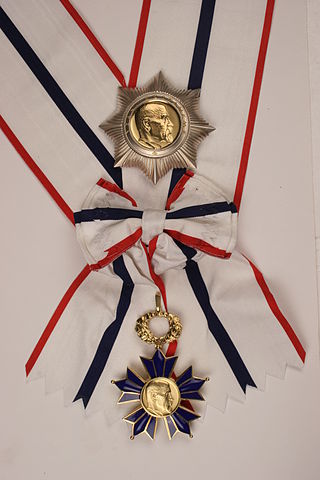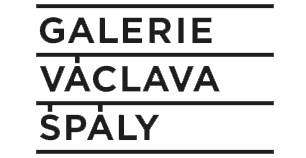
Czech cinema comprises the cinema of Czech Republic as well as cinema while this country was a part of other countries.

Charter 77 was an informal civic initiative in the Czechoslovak Socialist Republic from 1976 to 1992, named after the document Charter 77 from January 1977. Founding members and architects were Jiří Němec, Václav Benda, Ladislav Hejdánek, Václav Havel, Jan Patočka, Zdeněk Mlynář, Jiří Hájek, Martin Palouš, Pavel Kohout, and Ladislav Lis. Spreading the text of the document was considered a political crime by the Czechoslovak government. After the 1989 Velvet Revolution, many of the members of the initiative played important roles in Czech and Slovak politics.
The Manifesto of Czech writers was the first public declaration in favour of the self-determination of the Czech nation during the First World War. It was published in May 1917. The declaration was directed at the Czech deputies at the Imperial Council in Vienna, the Parliament of the Austrian parts of the Austro-Hungarian Empire.
ICCF Czech Republic is an ICCF national member federations.
Petr Čepek was a Czech actor.

The Order of Tomáš Garrigue Masaryk is an Order of the Czech Republic and the former Czechoslovakia. It was established in 1990 after the Velvet Revolution, and re-established in 1994. The President of the Czech Republic awards it to individuals who have made outstanding contributions to the development of democracy, humanity and human rights. Unlike in the past, it is awarded to the Czech citizens and foreigners alike. The order has five classes, of which class I is the highest. The order is named in honor of Tomáš Garrigue Masaryk, an advocate of Czechoslovak independence and the first President of Czechoslovakia.

HC Dukla Prague is a handball club from Prague, Czech Republic, that plays in the Chance Extraliga.

Vražda v salonním coupé is a stage comedy play in the repertory of the Jára Cimrman Theatre. It was written by Zdeněk Svěrák and Ladislav Smoljak, and co-authorship is credited to the fictional Czech inventor, philosopher and dramatist Jára Cimrman. The play premiered on 14 May 1970 in Malostranská beseda, Prague. As of 1986, the play had been performed 556 times.

The Academy of Arts, Architecture and Design in Prague is a public university located in Prague, Czech Republic. The university offers the study disciplines of painting, illustration and graphics, fashion design, product design, graphic design, ceramics and porcelain, photography and architecture.
Žena za pultem was a Czechoslovak television programme which was first broadcast in 1977. The programme was directed by Jaroslav Dietl. The programme was noted for an erotic scene, which received attention from the ruling Communist Party of Czechoslovakia.

The Václav Špála Gallery is a Prague gallery of mostly contemporary art. It is located at no. 59/30 Národní třída, in the New Town of Prague. The gallery holds exhibitions particularly of works by living Czech professional artists of the middle generation who are among the best painters, photographers, and sculptors on the art scene today. The exhibitions regularly alternate between works of painting, photography, and sculpture.

We Love is a 1952 Czech drama film directed by Václav Kubásek and starring František Peterka, Jaroslav Průcha and Jarmila Krulišová. It was shot at the Barrandov and Hostivař Studios in Prague and on location around Kladno, Ostrava and Libušín. The film's sets were designed by the art director Alois Mecera. It reflected the ideology of the ruling Communist Party and the Stalin-era aesthetic of socialist realism.

Čapkovy kapsy is a Czech crime comedy television series. It is a cycle of 12 short stories by Czech Television based on the stories of Karel Čapek. Each episode was directed by a different director.

Bohéma is a Czech historical drama television series about film stars of the First Republic during and after the Second World War, more precisely in a period 1938–1953. The first episode was watched by over one million viewers, but some historians and relatives of depicted characters pointed out some inaccuracies.









